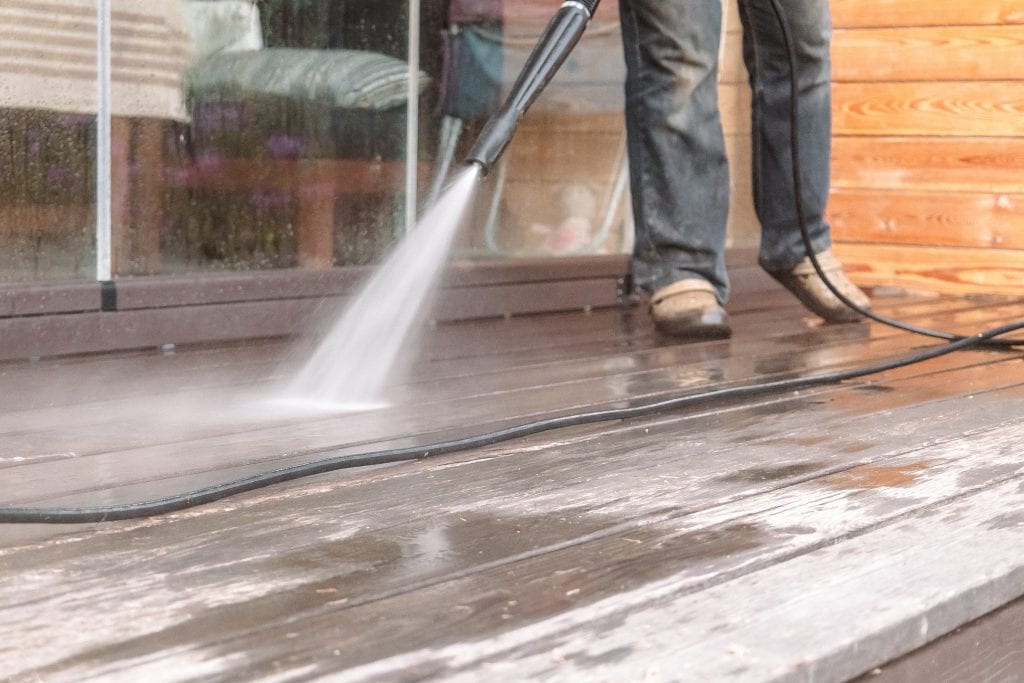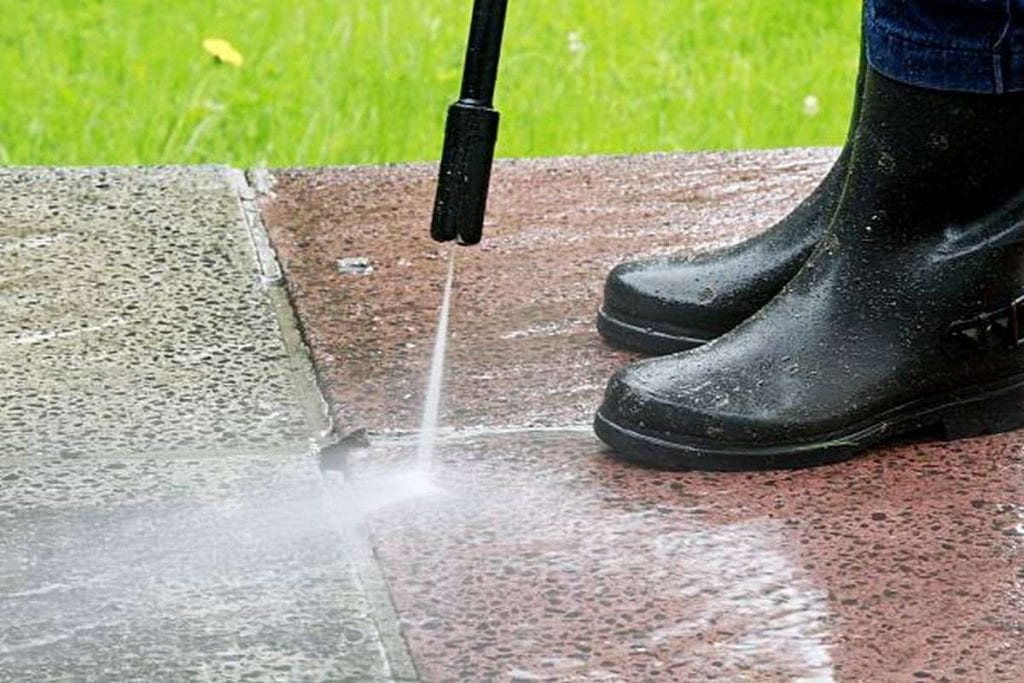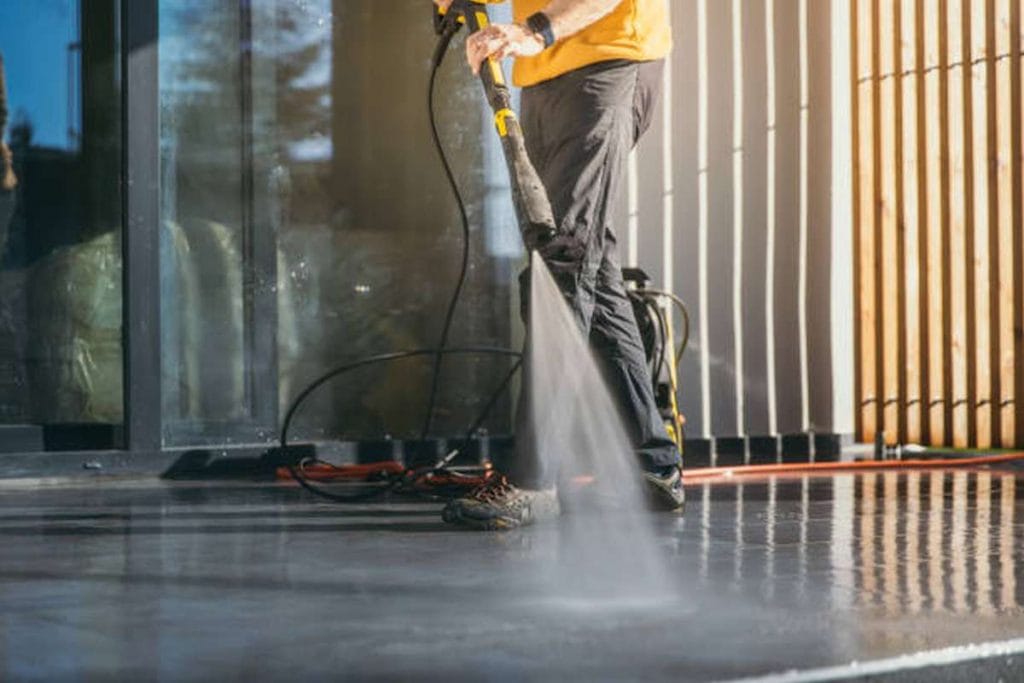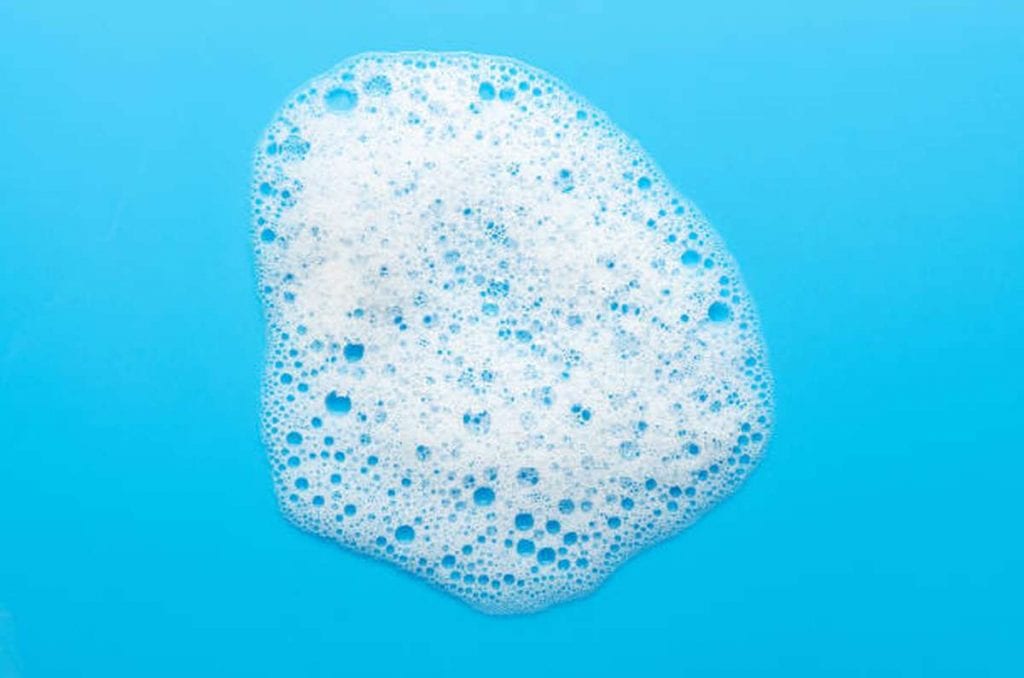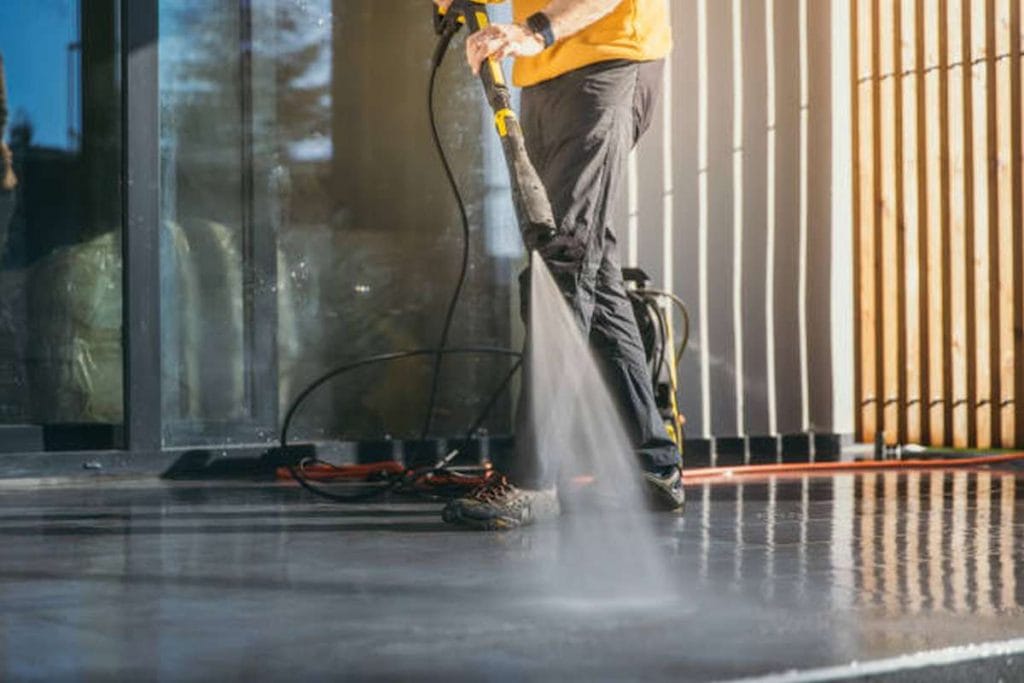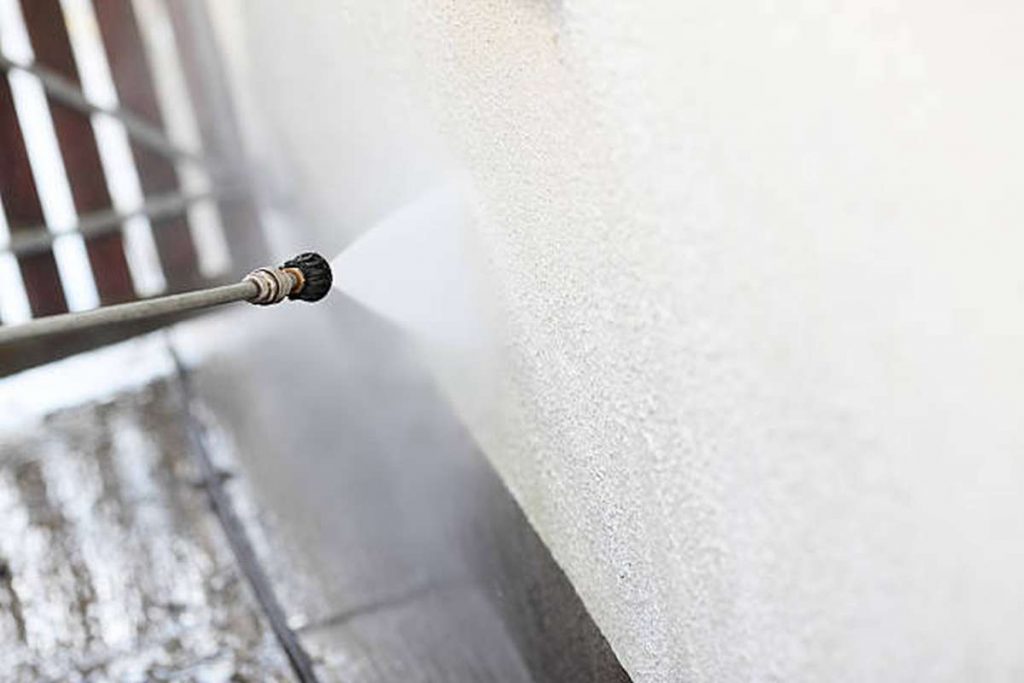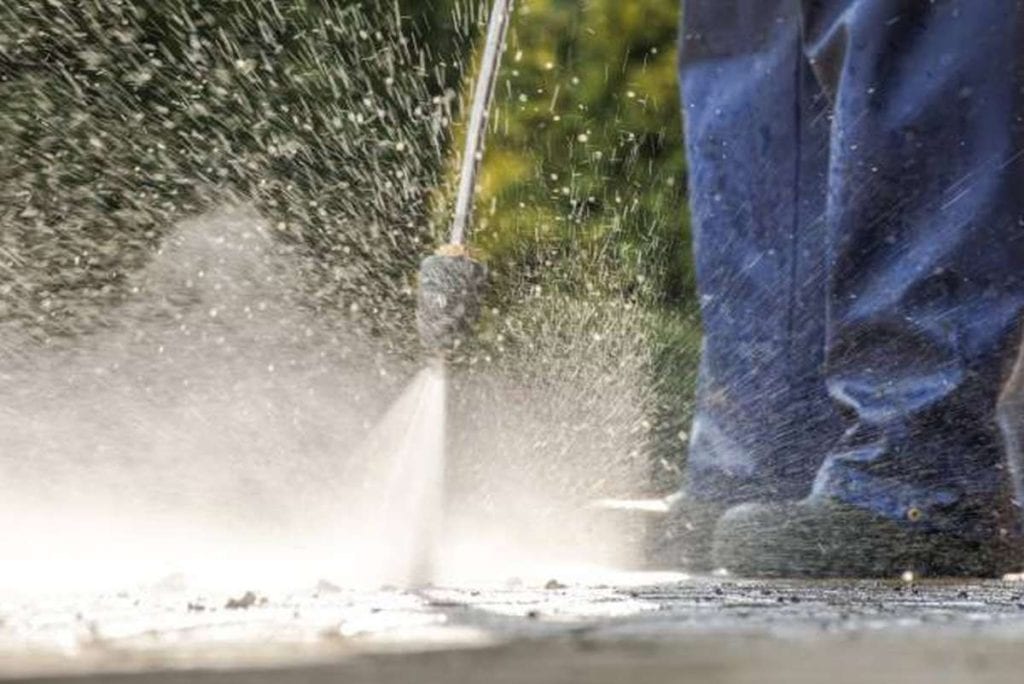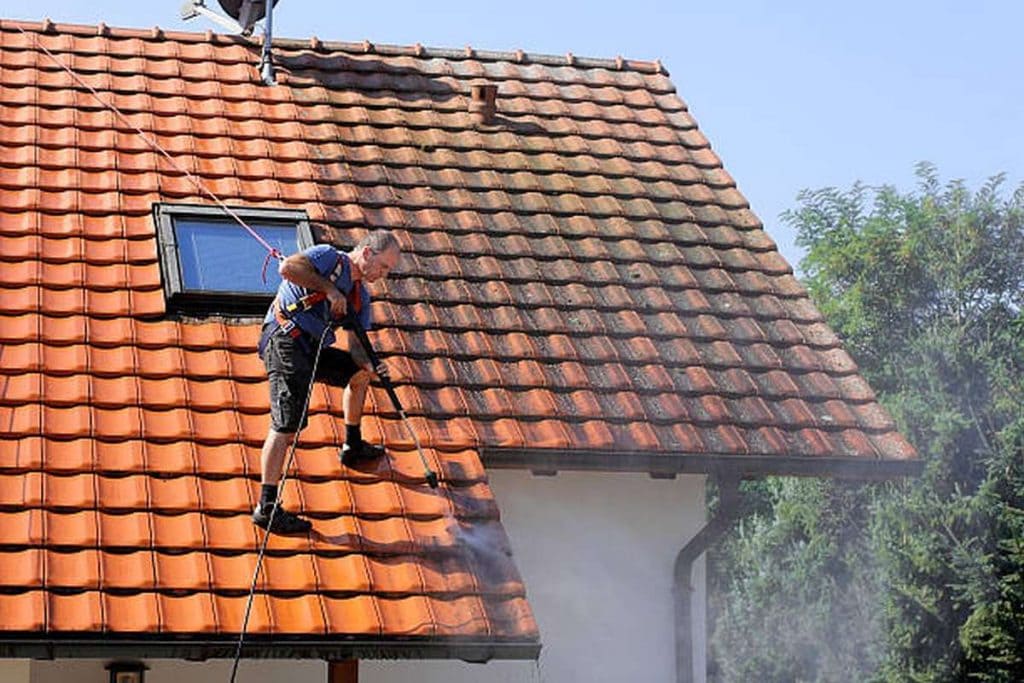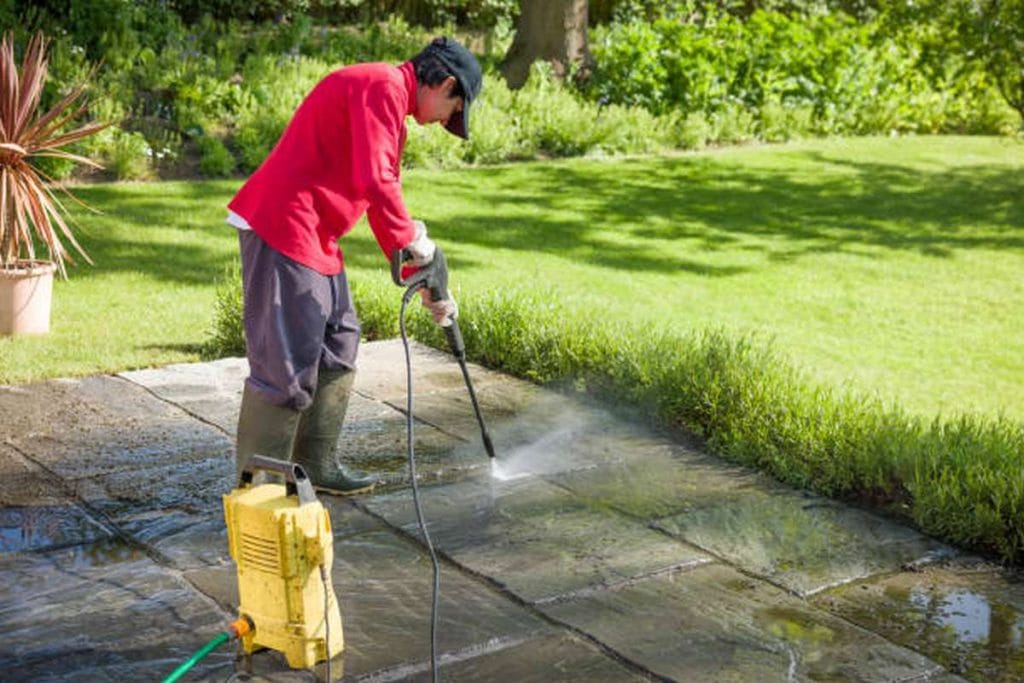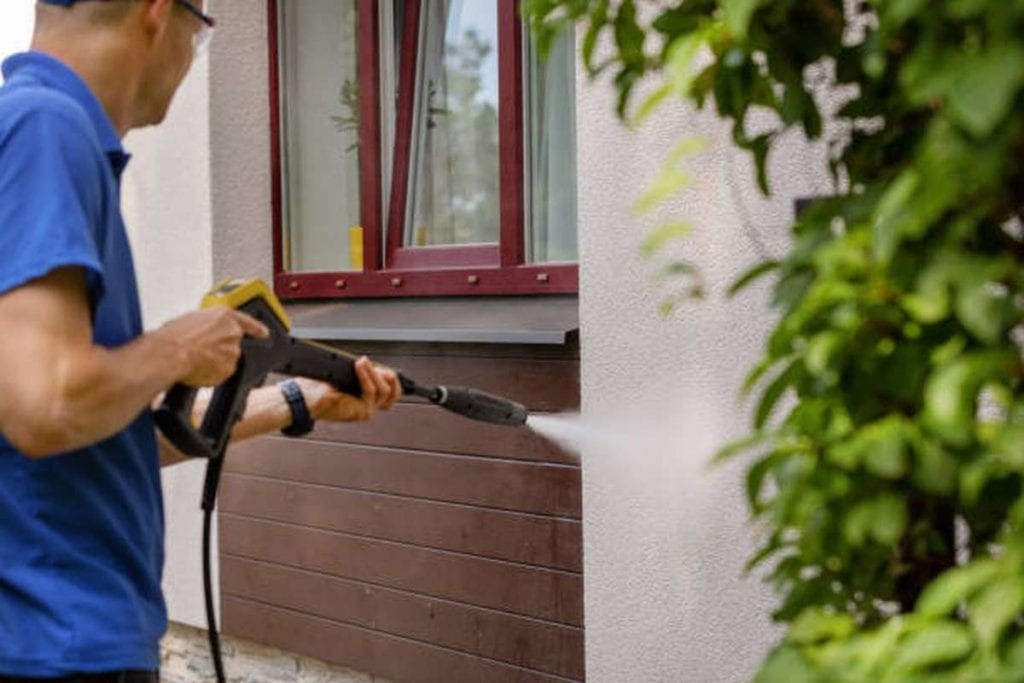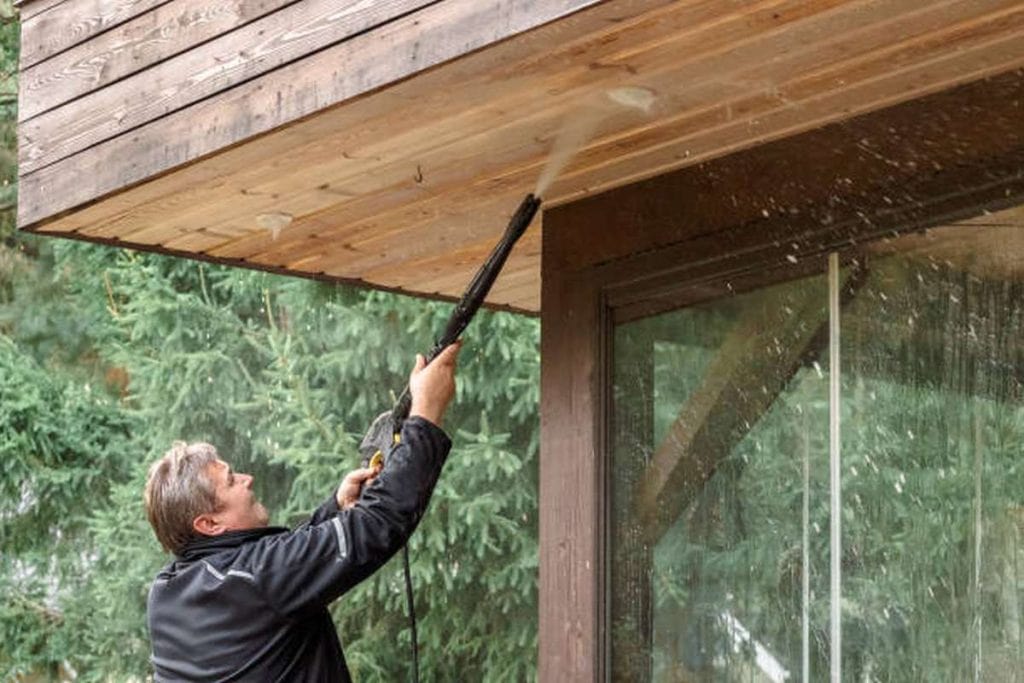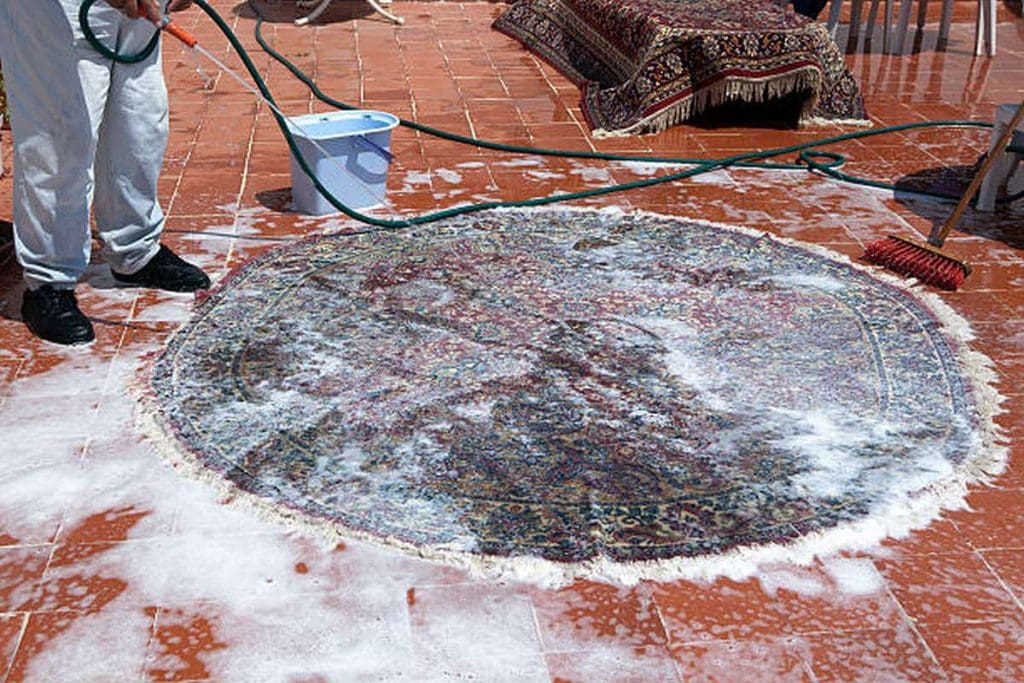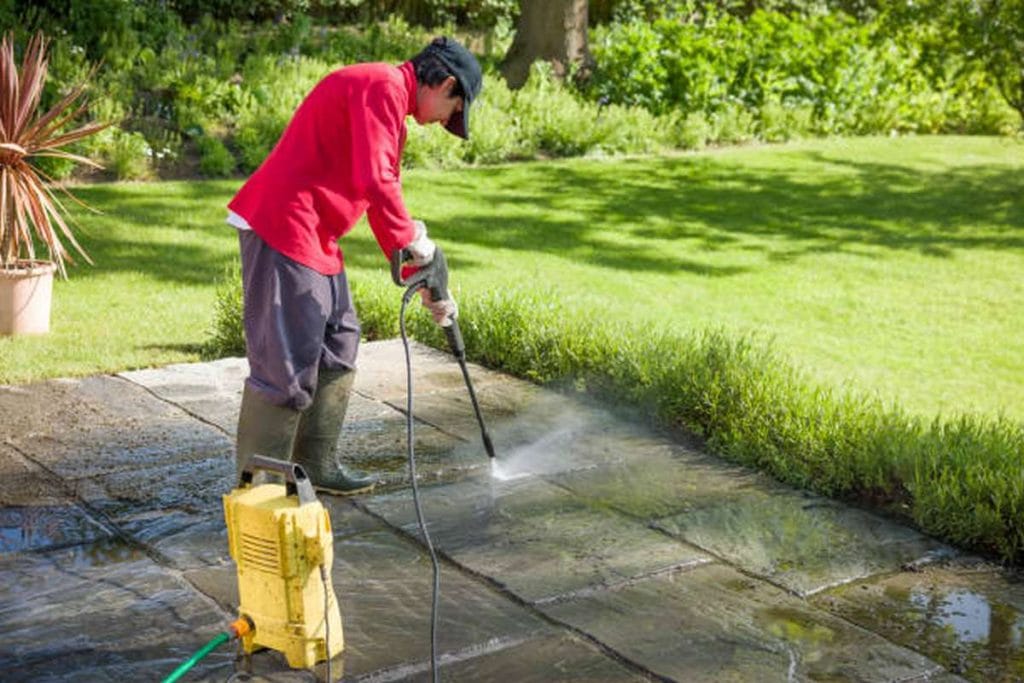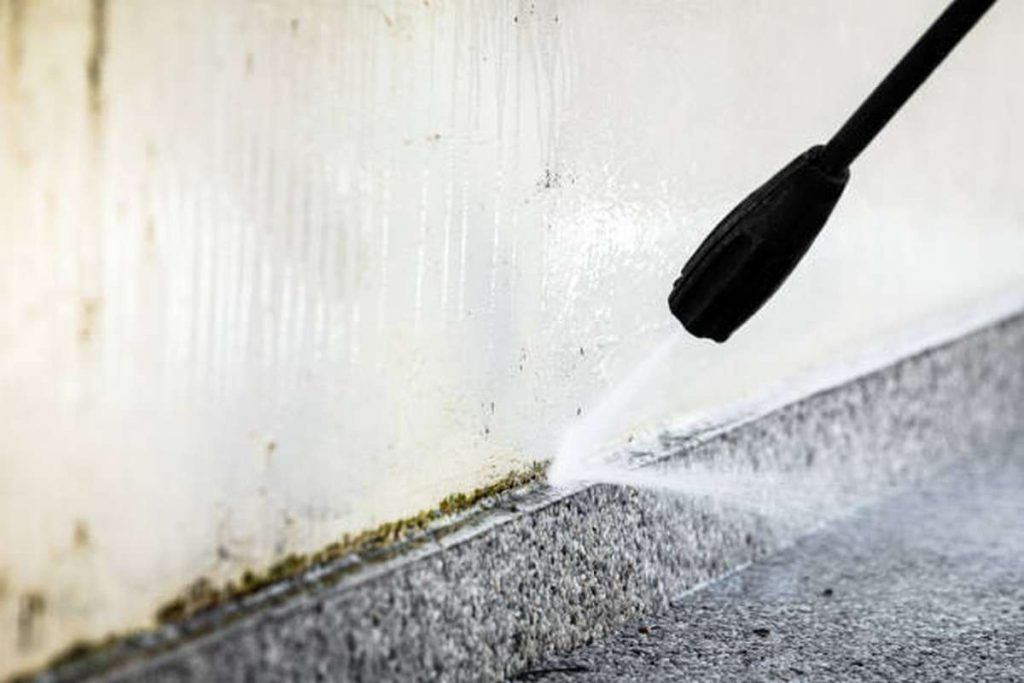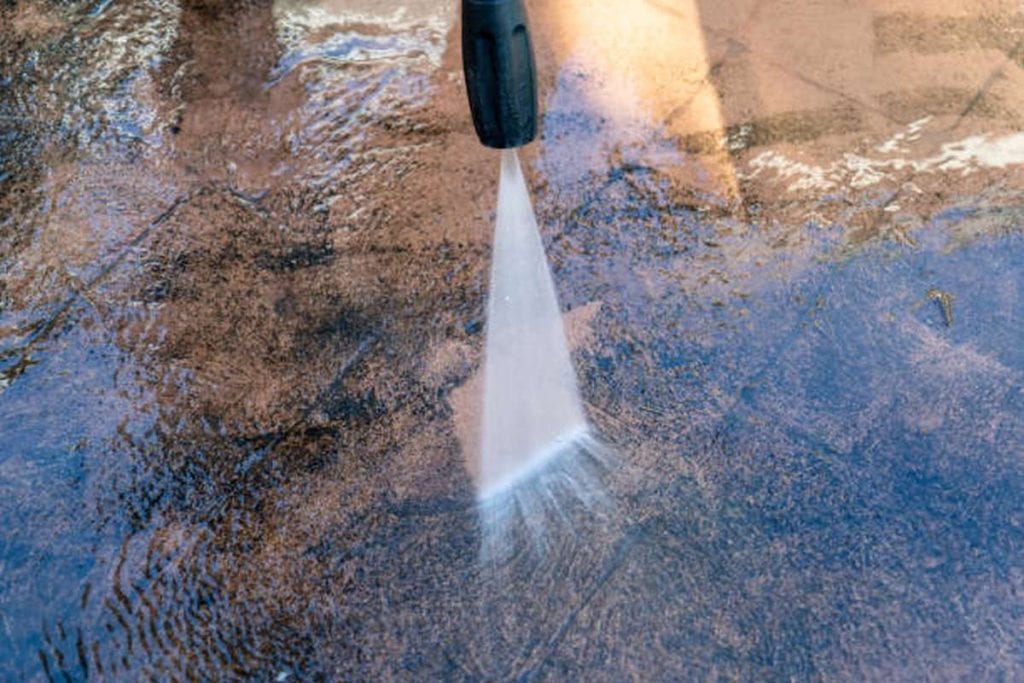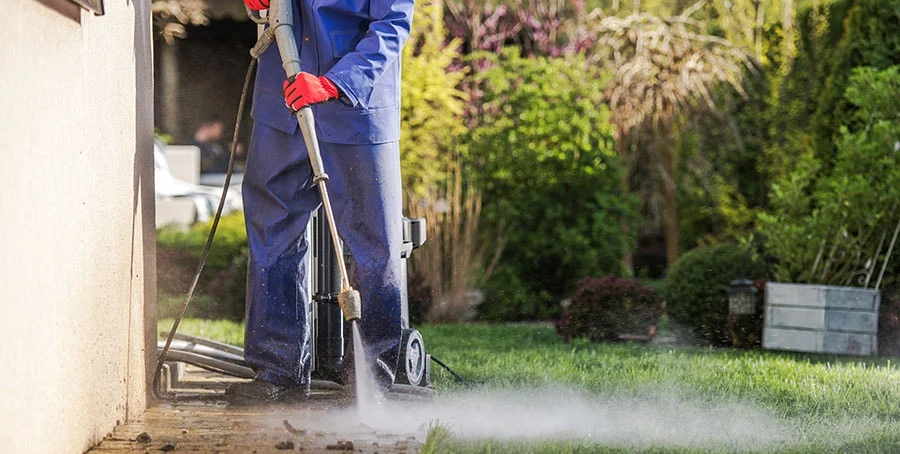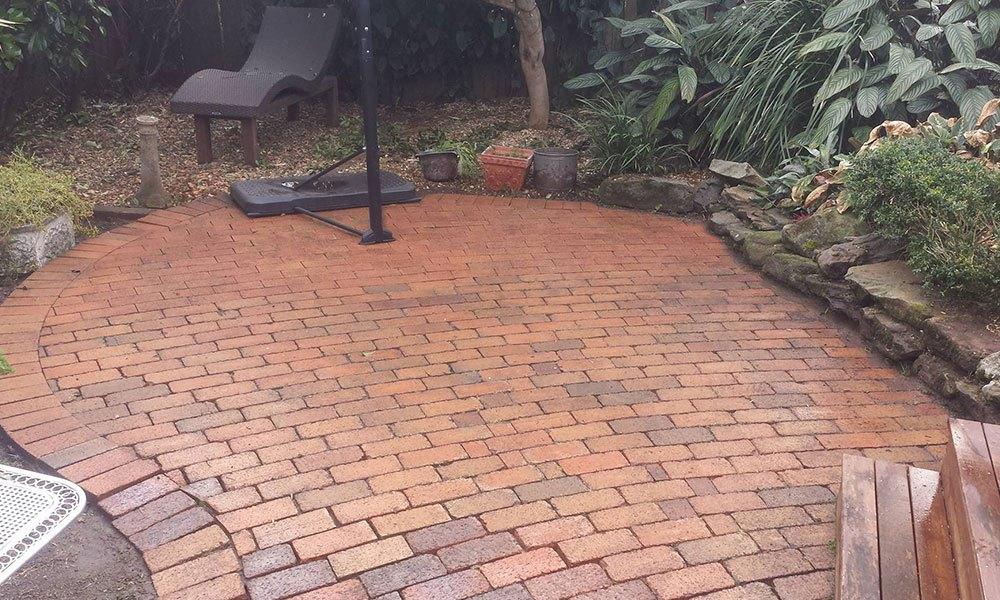A clean and well-maintained home is important for your health and overall well-being. Indeed, spring cleaning can both be a physical and emotional experience, but sometimes you need something more thorough than just the typical mop or dusting session. Pressure washing can provide an even deeper level of cleanliness; however, there are certain things in your home you should never pressure wash as it could cause costly damage or injury! In this blog post, we will explore what needs to remain off-limits when power washing, so read on if you want some useful tips for getting the most out of your next cleaning endeavour without causing any harm.
Wood Cladding
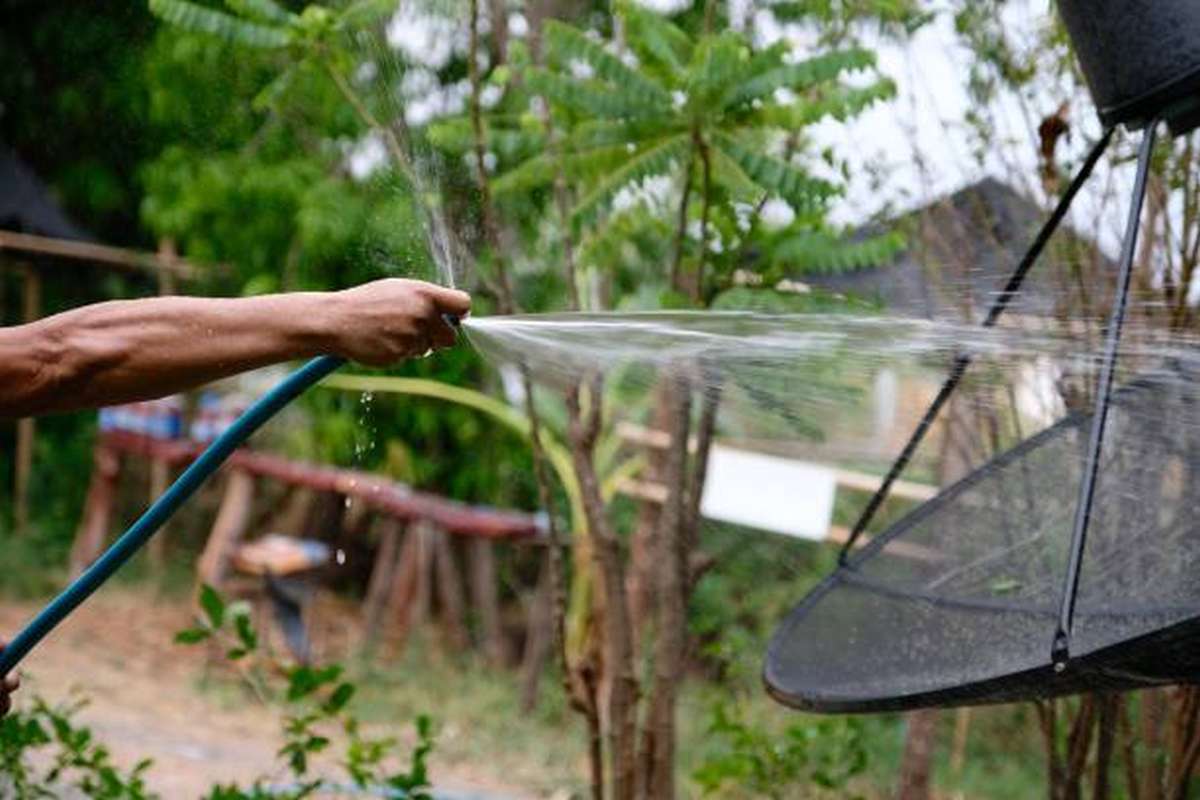
Pressure washing wood siding the right way is doable, but using too much force can cause water to seep up under the siding. Water seepage under siding can compromise building materials like insulation and wiring and even promote mould growth. Aluminium, too forceful pressure wash, may dent aluminium and vinyl siding, so if you plan to use one, it's important to know how to use it properly.
Electrical Usage Monitoring Devices
Electric metres are often housed in a sturdy metal inclosure with a see-through plastic or glass front. The metre is protected from the elements by the shell, but it may be damaged by the high-pressure stream generated by a pressure washer. Furthermore, the power generated by the pressure washer might force water through the restricted openings, resulting in expensive repairs to an incoming electrical system.
Asphalt Roofing
If your roof is made of asphalt shingles, you should never use a power washer. Your roof's protective granules will be washed away by the force of the water. Furthermore, the intense recoil of the spray wand when the trigger is squeezed makes operating a pressure washer from a height unsafe, as it could cause you to lose your balance and fall off a ladder.
Central Air Conditioning
Don't use a pressure washer if you want a clean air conditioner. The powerful water flow can bend or crush the tiny fins, limiting airflow and decreasing the unit's lifespan. Instead, use a butter knife to straighten the cooling fins, a vacuum, and considerably less forceful water flow to remove dirt.
The air conditioning unit's metal housing serves to shield the unit's fragile metal fins from damage. A pressure washer can efficiently clean the outside of an AC unit, but it also has the potential to bend and crush the fins, reducing airflow. So instead, keep the power washer again for the driveway and clean the fins with a water hose, vacuum, and soft brush.
Gutters
To keep your fascia and gutters intact, you should not use excessive pressure when cleaning your gutters. Instead, use a hose pipe and a cheap plumbing snake to clean them, or consult an expert about gutter cleaning services.
Lighting Equipment
Lights mounted on lampposts, and porches are built to withstand the elements, including rain, sleet, ice, ice, and severe winds, but they're not meant to withstand the force of the horizontal water stream from a pressure washer. The high-velocity water stream can shatter any glass panels or light bulbs and even dislodge the light fixture from its mounting. In addition, water may infiltrate through the fractures and destroy the internal electronic connections if the impact doesn't destroy the fixture.
Vehicle
Are you contemplating power cleaning a car? You should not subject your car to high-pressure cleaning if you want to avoid small dents and paint chips that could eventually lead to rust. Instead, wash it by hand using a soft cloth to avoid scratching or denting your vehicle's finish.
The low-pressure setting on some pressure washers allows them to meet the marketing claim that they are safe for use on vehicles. However, avoid using a power washer on a car at all costs since even minor adjustments to the distance between the car and the nozzle can result in significant damage, such as dents or chips inside the paint that leave the car susceptible to rust. The intensity of the spray can also force moisture into the engine's nooks and crannies, causing extensive damage and costly repairs.
Windows
When using a pressure washer on windows, you risk shattering the panes and sending shards of glass flying. Cleaning windows or other glass surfaces at too high pressure doesn't risk injury.
Toxic Paint
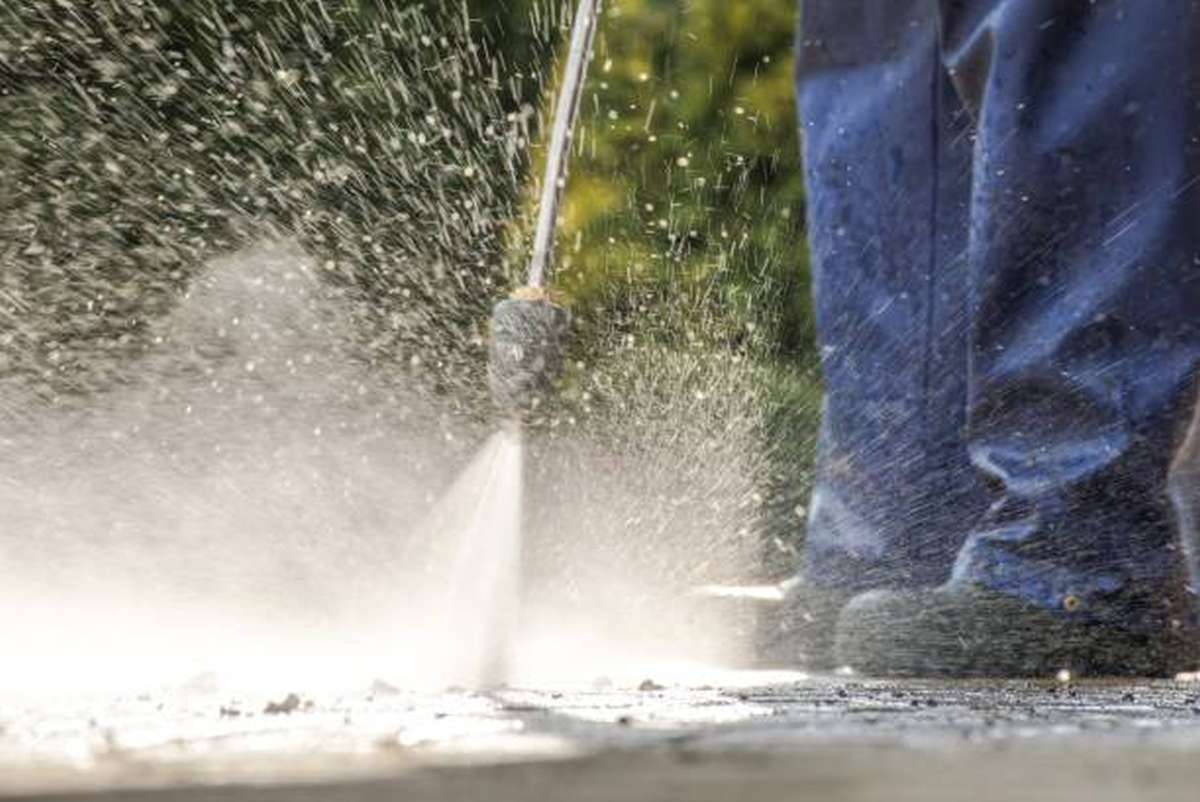
Avoid using a pressure washer on lead paint. Lead paint should not be blasted into the air and onto nearby surfaces during removal; instead, it should be properly confined.
Deteriorated Cement
Weathered brick homes and other mortared landscaping features are vulnerable to harm from a power washer. Pressure washing at a high setting will remove any loose debris, particularly from older buildings. Remove hard water stains from brick without resorting to a power washer by following these steps.
To clean concrete patios & paving stones, pressure washers are the best option. For new bricks, they can be utilised at a lower pressure setting. However, a pressure washer will just make matters worse if the exterior brick and mortar are already chipped and cracked. The force of the water can rip the mortar out of the wall and slice through the old brick, causing serious structural damage and letting the elements into the property.
Non-Harmful Living Things
This is a no-brainer. Never subject a human, animal, or plant to a pressure wash. Your plants will perish under the onslaught of water from a pressure washer, which can also cause physical harm (including skin penetration). Wearing safety glasses is a must when pressure washing any surface that requires it.
Wood That Has Been Dyed
Wood stains can be easily removed using a power washer. If you want to get the stain off your deck, by all means, use high-pressure washers. Avoid using a pressure washer if you want to maintain the stain on the wood.
Conclusion
To get an even greater degree of cleanliness, pressure washing is recommended. Some household items should never be pressure washed because you risk serious harm or expensive repair bills if you do. If you use too much pressure, water may leak in through the siding. Operating a pressure washer from a height is dangerous due to the powerful recoil of the spray wand when the trigger is pulled. The exterior of an AC unit can be cleaned quickly and easily with a pressure washer, but doing so may cause the fins to bend or even be crushed.
Clean the fins with a water hose, vacuum, and soft brush instead of the power washer. If you want to protect your car's paint and body from being damaged by tiny dings, you should not subject it to high-pressure cleaning. Cleaning windows or other glass surfaces with too much force using a power washer can be dangerous. High-pressure washing is a great way to eliminate the dust and dirt that has settled on older structures. Never use a pressure washer on a person, animal, or plant. When pressure cleaning, it is essential to wear protective eyewear.
Content Summary
- Keeping your home tidy and in good repair might have a positive effect on your health.
- Depending on your perspective, spring cleaning may be a physically and emotionally exhausting or rewarding activity. However, there are times when a more thorough cleaning is required than a simple dusting or mopping.
- Even while pressure washing can make a huge difference in how to clean something is, there are several things you should never pressure wash in your home to avoid causing expensive damage or injury to yourself or others.
- What should never be washed with a power washer is discussed in this article, so keep reading if you want to learn how to get the most out of your next cleaning job without causing any damage.
- Though pressure washing wood siding is possible if done properly, doing so with too much force might cause water to creep up beneath the siding.
- A building's insulation, wiring, and even mould growth can all be jeopardised by water seepage under the siding.
- In the same way that a too-vigorous pressure wash can harm aluminium and vinyl siding, it is crucial to know how to use a pressure washer safely if you intend to do so.
- Meters for electricity are often enclosed in a strong metal case with a transparent plastic or glass face.
- While the metre's casing shields it from the outdoors, it could be destroyed by the high-pressure stream produced by a pressure washer.
- Furthermore, the pressure washer's power could force water through the limited apertures, resulting in costly repairs to an incoming electrical system.
- Never use high-pressure water on asphalt shingle roofs.
- The power of the water will remove the protecting granules from your roof.
- Furthermore, running a pressure washer from a height is dangerous due to the powerful recoil of the spray wand when the trigger is pulled.
- Conditioned air distribution system
- If you want a clean air conditioner, don't use a pressure washer.
- The tiny fins are easily bent or crushed by the strong water flow, which reduces airflow and shortens the unit's life.
- Remove dirt with a vacuum and much less strong water flow, then use a butter knife to straighten the cooling fins.
- The exterior of an AC unit can be cleaned quickly and easily with a pressure washer, but doing so may damage the device by bending or crushing the fins and preventing air from flowing freely.
- Keep the power washer for the driveway and use a hose, vacuum, and soft brush to clean the fins.
- When cleaning your gutters, avoid using too much force to prevent damage to the fascia and gutters.
- Instead, get a professional to do it or use a hose and an inexpensive plumbing snake.
- Lights mounted on lampposts, and porches are resistant to precipitation, sleet, ice, and high winds, but they are not designed to withstand the force of a pressure washer's horizontal water stream.
- Any glass panels or light bulbs, as well as the light fixture itself, could be shattered by the high-velocity water stream.
- If the fixture survives the collision, water can seep in via the cracks and corrode the internal electronic connections.
- If you care about keeping your automobile free of the dings and chips in its paint that might lead to corrosion, you should not subject it to high-pressure cleaning.
- If you don't want to risk damage to your car's finish, it's best to wash it by hand with a soft cloth.
- Some pressure washers can be used safely on vehicles because of their low-pressure setting.
- Never use a power washer on a car, as even the smallest shifts in distance between the vehicle and the nozzle can cause major damage, such as dents or chips inside the paint that leave the vehicle vulnerable to corrosion.
- The spray's strength can also force water into the crevices of the engine, leading to serious damage and expensive repairs.
- It is dangerous to use a power washer on windows because the panes could break and splinter.
- Applying excessive force while cleaning windows or other glass surfaces does not pose any danger of injury.
- If the paint has lead in it, do not use a high-powered washer.
- During removal, lead paint should not be shot into the air and onto neighbouring surfaces but contained instead.
- When used improperly, a power washer can cause irreparable damage to mortared landscape elements, such as brick homes that have seen better days.
- Loose debris, especially on older buildings, can be washed away with a high-pressure wash.
- Follow these instructions to remove hard water stains on brick without using a pressure washer.
- Paving stones and concrete patios are best cleaned with a power washer.
- They can be used at a lower pressure setting while making fresh bricks.
- But if the external brick and mortar are already chipped and broken, a pressure washer will only make issues worse.
- It is possible for the water's force to break the mortar out of the wall and cut through the old brick, causing significant structural damage and allowing the elements inside the home.
- A simple yes or no answer could not be more appropriate.
- Never use a pressure washer on a person, animal, or plant.
- A pressure washer is not only harmful to your plants but can also cause you bodily harm (including skin penetration).
- When pressure cleaning, it is essential to wear protective eyewear.
- A power washer is an effective tool for removing the wood stain.
- Feel free to use high-pressure washers if that's what it takes to remove the stain from your deck.
- If you want the wood stain to last, you shouldn't use a power washer.
FAQs About Pressure Washing
A pressure washer is useful for cleaning any exterior surface that has caked-on dirt, grease, plant residue or other material across a large surface area. To prevent injury, avoid pressure-washing anything living, whether it's people, animals or plants.
It is not advisable to use a pressure washer indoors. But you can use a pressure washer indoors to clean a shower or bathtub if you run the pressure washer from an exterior hose bib (outside hose line) and keep the pressure washer device outside to avoid leaking or flooding problems from the device.
Your house is built to withstand rain and other moisture, and it can even withstand a low PSI with a pressure washer, but when pressure washers are used at full capacity, you may end up with soggy carpet, wet attics, and mold. When done incorrectly, a pressure washer can damage siding, even knocking it loose.
Hidden under the hood, many will never notice how dirty it gets. Road grime and oily buildup splash up on the engine, coating it black with filth. But you can blast it all away with a pressure washer. Maybe you've wondered "can you pressure wash a car engine?" and the answer is yes.
Hidden under the hood, many will never notice how dirty it gets. Road grime and oily buildup splash up on the engine, coating it black with filth. But you can blast it all away with a pressure washer. Maybe you've wondered "can you pressure wash a car engine?" and the answer is yes.



